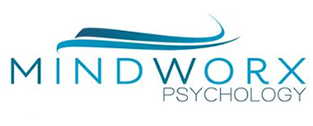What is Dialectical Behaviour Therapy (DBT) and how can it help with Binge Eating?
Dialectical Behaviour Therapy (DBT) is an integrated and evidence-based therapy approach that has been found to be helpful for people who are struggling with binge eating behaviours.
Binge eating often involves a sense of chaos and loss of control around eating, which gives rise to feelings such guilt, shame, numbness, confusion and anxiety.
One of the key skills that DBT teaches is how to process some of these emotions in a more effective way in order to short-circuit binge eating cycles.
Mindfulness skills and acceptance strategies are some of the core techniques in DBT. Mindfulness is a practice in which a person calmly brings their focus and attention to their present moment emotions, and experiences these emotions fully without judgment or impulsively trying to push them away.
In DBT, a person uses a variety of mindfulness practices to become aware of the experiences that commonly trigger the urge to binge and then taught skills in emotional regulation and distress tolerance in order to “improve the moment”. DBT also teaches a wide range of techniques for calming and relaxation, so that a person can develop their own “coping toolbox” for whenever or wherever they need it.
As a person’s unhealthy relationship with food can often stem from unhelpful beliefs about food or mirror problematic relationships with other people, DBT is often delivered alongside other proven therapies including cognitive behavioural therapy (CBT) and interpersonal therapy (IPT). Other complementary forms of treatment may include the use of dietetic therapy and medical management.
When used as part of a comprehensive treatment approach, DBT can be invaluable in helping a person to decrease the frequency of their binge eating behaviours, treat binge eating disorder, and develop a healthier relationship with food.
Ready for change? We are ready to help
____________________________
Article written by: Dr Salena Bhanji, Doctor of Counseling Psychology
Dr Salena Bhanji has a special interest in Binge Eating Disorders and is passionate about helping others.
about author

Dr Amanda Mullin, Founder of Mindworx Psychology & Doctor of Clinical Psychology
subscribe to newsletter
Keep up to date with the latest in evidence based treatments

